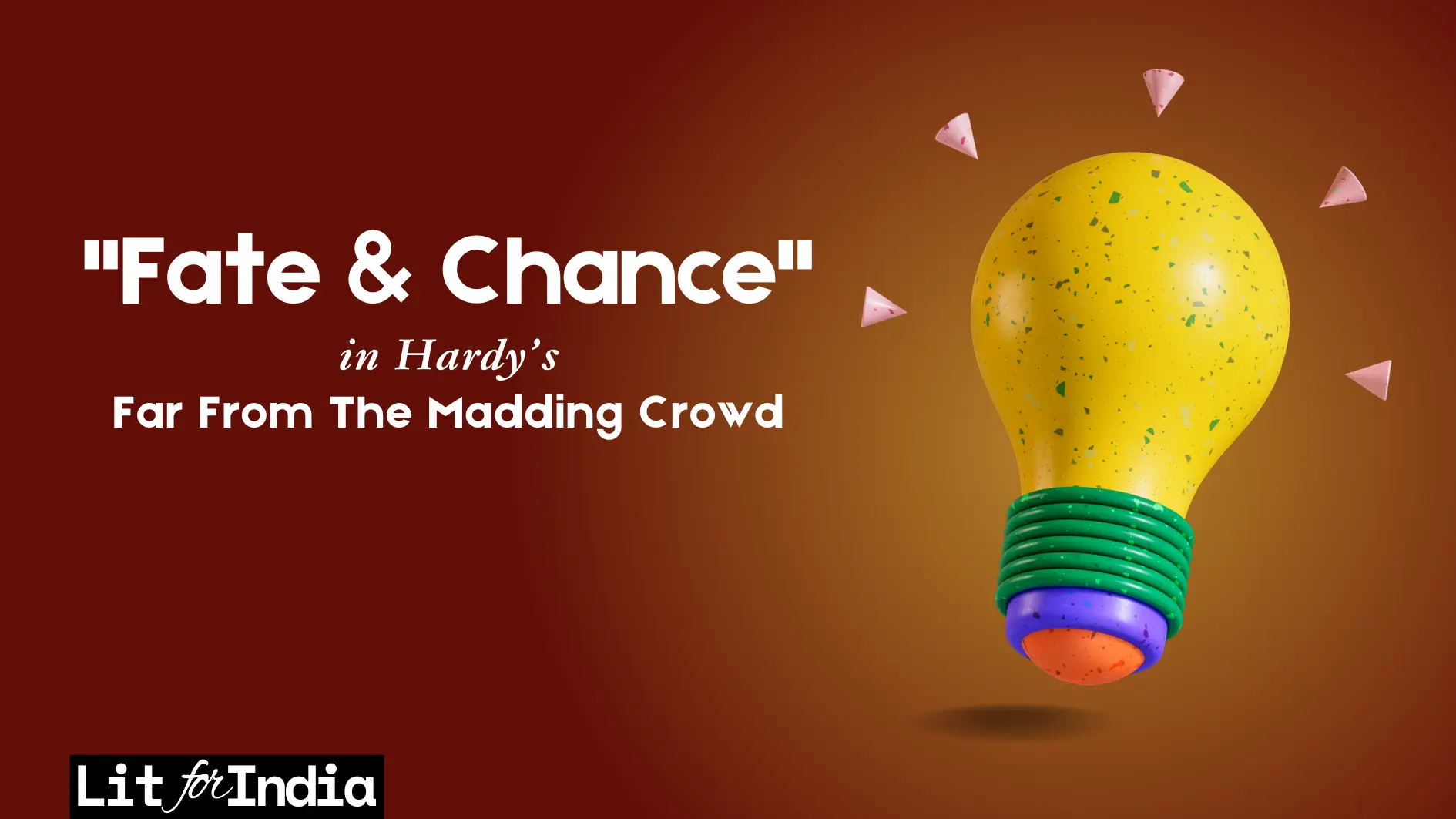
Hardy has written all his novels with a particular purpose and that is to represent the philosophy of life which is very pessimistic. The subtle use of “Fate and Chance” helps him in executing this objective. Fate and chance play very crucial roles in all the novels of Hardy. Commenting on the importance of fate in the novels of Thomas Hardy, David Cecil remarks, “a struggle between man, on the one hand, and on the other, an omnipotent and indifferent fate- that is Hardy’s interpretation of the human scene.” The idea that man is a mere puppet in the hands of fate and chance is expressed profusely in his novels. Men can’t change and divert the will of their destiny. Thus, he philosophises that when two persons make a program “fate and chance” is the third invisible partner. Whenever he wants to give a certain twist to his plot there he uses the incident of fate and chance. But, this overuse of fate and chance incidents has been criticised by some critics of Hardy as well, as this makes the plot look artificial.
“Far from the Madding Crowd” is replete with the incidents of Fate and Chance. At the very outset, the struggle between man and omnipotent fate is reflected through the character of Gabriel Oak. At one stroke of fate and chance his business is destroyed. He has two dogs with him, George, the junior and George, the senior. One night, one of the dogs has been left out to eat his dead lambs. After finishing the food it comes to the fold and starts barking. The barking of the dog creates consternation inside the fold and all the sheep start running helter-skelter. Ultimately, all the sheep fall into a deep pit and the next morning when Oak awakes he finds that all his 200 sheep are dead. After that, he sells some household goods and pays back his loan. Thus, this man is reduced to nothing. And who is responsible for it? Indeed! Fate and chance.
The fate and chance incidents are hostile to the female protagonist as well. A love letter written on a small piece of paper only for the sake of pleasure by Bathsheba Everdene has a very tremendous effect on the life of Mr Boldwood. This letter is sent to Mr Boldwood by Bathsheba after tossing the Bible book. There is no seriousness involved in that. Thus, the book of the Bible decides the destination of the letter. Hence, this small letter is instrumental in bringing complications and miseries in the lives of all the major characters of the novel. As Hardy writes,” The disturbances was the first floating weed to Columbus – the contemptibly little suggesting possibilities of the infinitely great.“
Life is just random. Everything is just random. Nothing can be done to control anything. The reunification of Gabriel Oak with Bathsheba Everdene is also a part of this randomness. Hardy brings forth this random moment through the use of Fate and chance. After the downfall of his business, Gabriel Oak leaves his village and goes to Weatherbury. There a local fair is going on. (In the plot structure of Hardy local fairs and festivals play an important role) Oak feels empty so to rest he climbs into the back part of a carriage and very soon he falls asleep. By the time Oak opens his eyes, he is in Bathsheba’s barn. There, he peeps outside the carriage and perceives that a big barn has caught fire. So, immediately he jumps down the carriage and engages himself in putting out the fire and very successfully he soon puts out the fire and saves the barn successfully. The award of this too falls in his lap and that is Bathsheba offers him the job of a barn keeper and Oak agrees. So, Oak is United with Bathsheba and again “fate and chance” is responsible for that.
The working of “fate and chance” incident has a deep impact even on a minor character like Fanny Robin. Her arrival at the wrong church has ruined all her expectations of marriage with Seargent Troy. On the other hand, The fatal meeting of Seargent Troy with Bathsheba is also due to fate and chance. It is because of the Fir Plantation that the walking area is very narrow helps bring both Bathsheba and Troy together, which ultimately leads to great misery and complications in the novel’s plot structure.
Conclusion
There is an unseen power which is hostile to human beings. This unseen power has several tools to shower heaps of miseries on man. They are nature, love fate and chance. Thus, in Hardy’s novels fate and chance an important tool to torture human beings in the hands of that unseen power.
